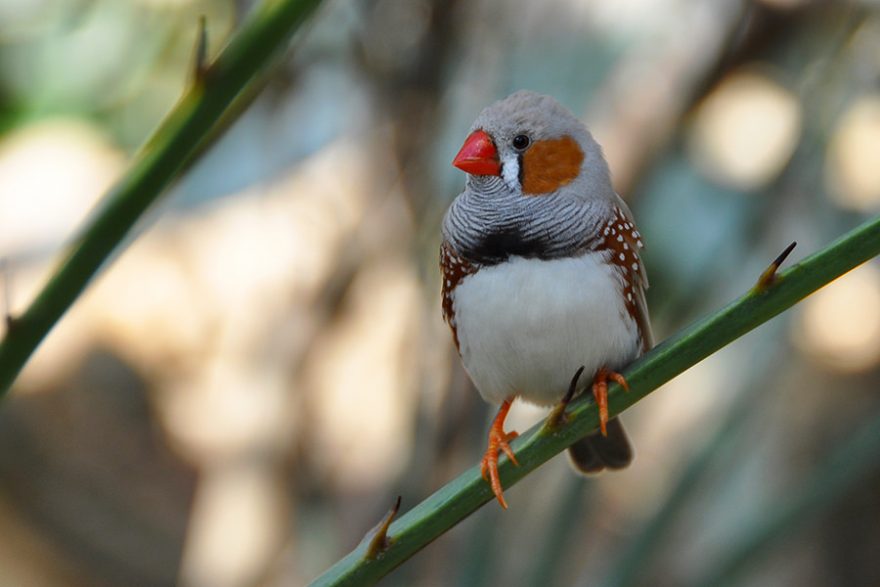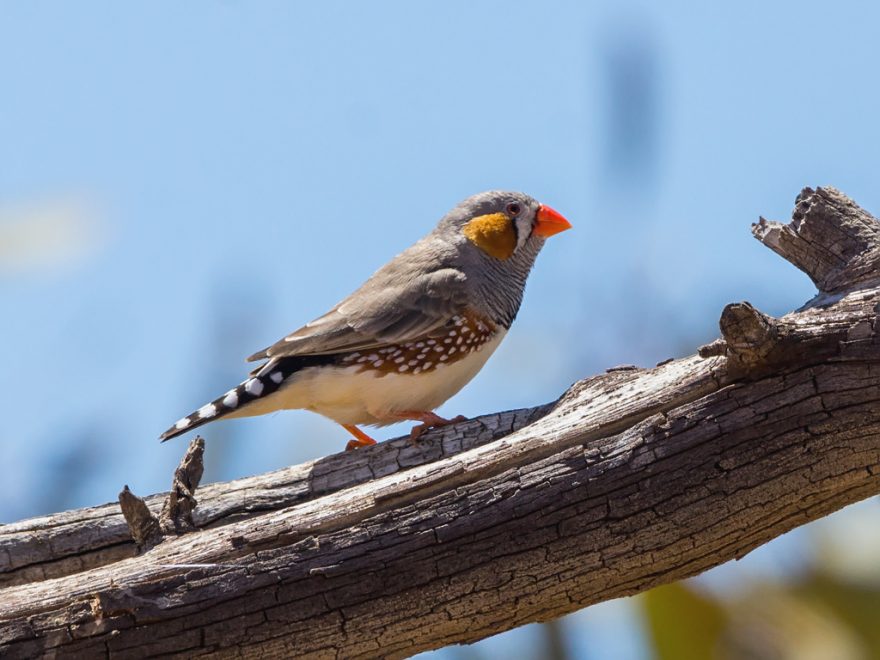Zebra finches are native to Australia, Indonesia and East Timor; where they inhabit grasslands and forests, typically close to a water source. Thanks to their strong breeding performance and low maintenance demands, they are among the most popular finch species kept in captivity.

Diet
Seed forms the basis of most finch diets. Seed lacks many essential vitamins and minerals which must be compensated for by introducing other foods. Green seed heads or sprouted seed increases the nutritional value of seed and is a cheap way to improve your birds health. Leafy green vegetables such as kale, endive and silverbeet (chard) are also a convenient source of nutrition.
Zebra finches are able to thrive on virtually any diet. They are often referred to as “seed and water” finches by some keepers. Despite this characterization, a varied and nutritious diet must be provided for the bird to attain its optimal breeding performance and lifespan.
Commercial soft finch food mixes can be provided for an added nutrient boost, particularly when breeding. Some birds will consume insects for extra nutrients, but they are not an essential part of the Zebra finch’s diet.
Housing
Zebra finches have minimal housing requirements and can be successfully kept in a cage, cabinet or aviary environment. As with all finch species, a large sparsely populated planted aviary is the ideal habitat.
The Zebra finch can be aggressive (particularly when breeding) so care should be taken to provide each bird with an adequate amount of space and sufficient places to escape the dominant bird. They can be successfully housed in a colony or mixed collection, however their boisterous nature may stress the more placid finch species.

Breeding
Zebra finches are prolific and opportunistic breeders, who will produce a significant number of young in the most basic of conditions. They will readily use commercial nesting baskets and nest boxes, or construct their own nests in plants and brush.
Zebra finches are make excellent parents and will take turns sitting on the nest and bringing food to the young. The male may become territorial when breeding and may chase or harass other birds in the aviary to protect the nest.
Zebra finches will lay between 3-7 eggs which they incubate for approximately two weeks. Young begin to fledge the nest from three weeks of age. The young achieve their adult plumage at three months of age and become sexually mature at six months.
Health
Zebra finches tend to have poorer hygiene than other finch species. They will defecate in food and water dishes and discard large amounts of seed. Controlling mites, rodents and maintaining high levels of cleanliness is especially important in aviaries where Zebra finches are present.
A strict worming and parasite control regime is essential to ensure the long-term health of any finch collection.